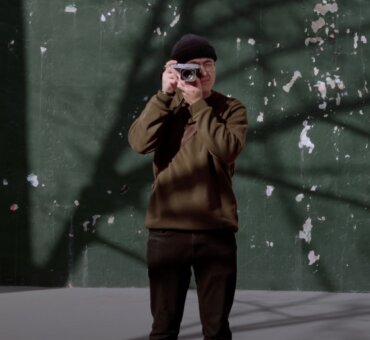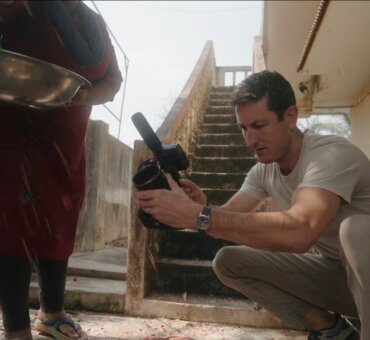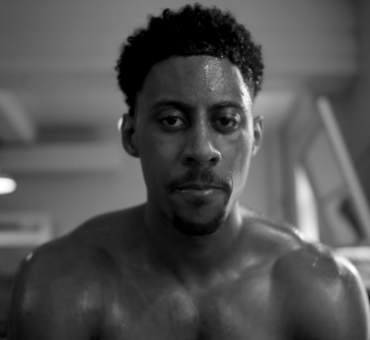The quickest way to do bad work is to worry about doing bad work. It’s that well-known truth all over again: We move toward what we focus on. At some point, the people who make great things stop worrying so much about making bad things, and they start getting work done, getting projects finished, getting pieces out there. They eschew perfectionism in favor of productivity. They work fast — and fearlessly.
If you’ve found yourself weighed down by worry and perfectionism, here are 10 bits and pieces to help get you moving again.

CHAD LAWSON
MB: Do you think a song is more honest when it comes out quickly?
I think so. I read somewhere that Bob Dylan never rehearsed a song more than twice before a recording session, because he didn’t want to ruin it. For me, I’m always thinking about how simple I can make something and still have it be enough. I’m very minimal. Any simpler and there’s going to be a lot of empty space.
But I think there is an authenticity to the songs that happen quickly. A lot of these things I’m mixing and mastering myself. I shouldn’t be mixing and mastering, but that’s how it goes. When I’m inspired by something, I work fast. I’m going to get a little heavy on you here, but I literally have to wait for the Lord to be like, Okay, it’s time to write. There are a lot of people who write every day, but I don’t work that way. I wait until God says it’s time to write an album, and then I sit down and say, Okay, what’ve you got? It’s not mine. I don’t claim it as mine. I remember it wasn’t until I wrote the album The Space Between that I first started feeling comfortable in my own skin. I wrote that album in a day.
ANNE LAMOTT
Perfectionism is the voice of the oppressor, the enemy of the people. It will keep you cramped and insane your whole life… I think perfectionism is based on the obsessive belief that if you run carefully enough, hitting each stepping-stone just right, you won’t have to die. The truth is that you will die anyway and that a lot of people who aren’t even looking at their feet are going to do a whole lot better than you, and have a lot more fun while they’re doing it. — Bird by Bird
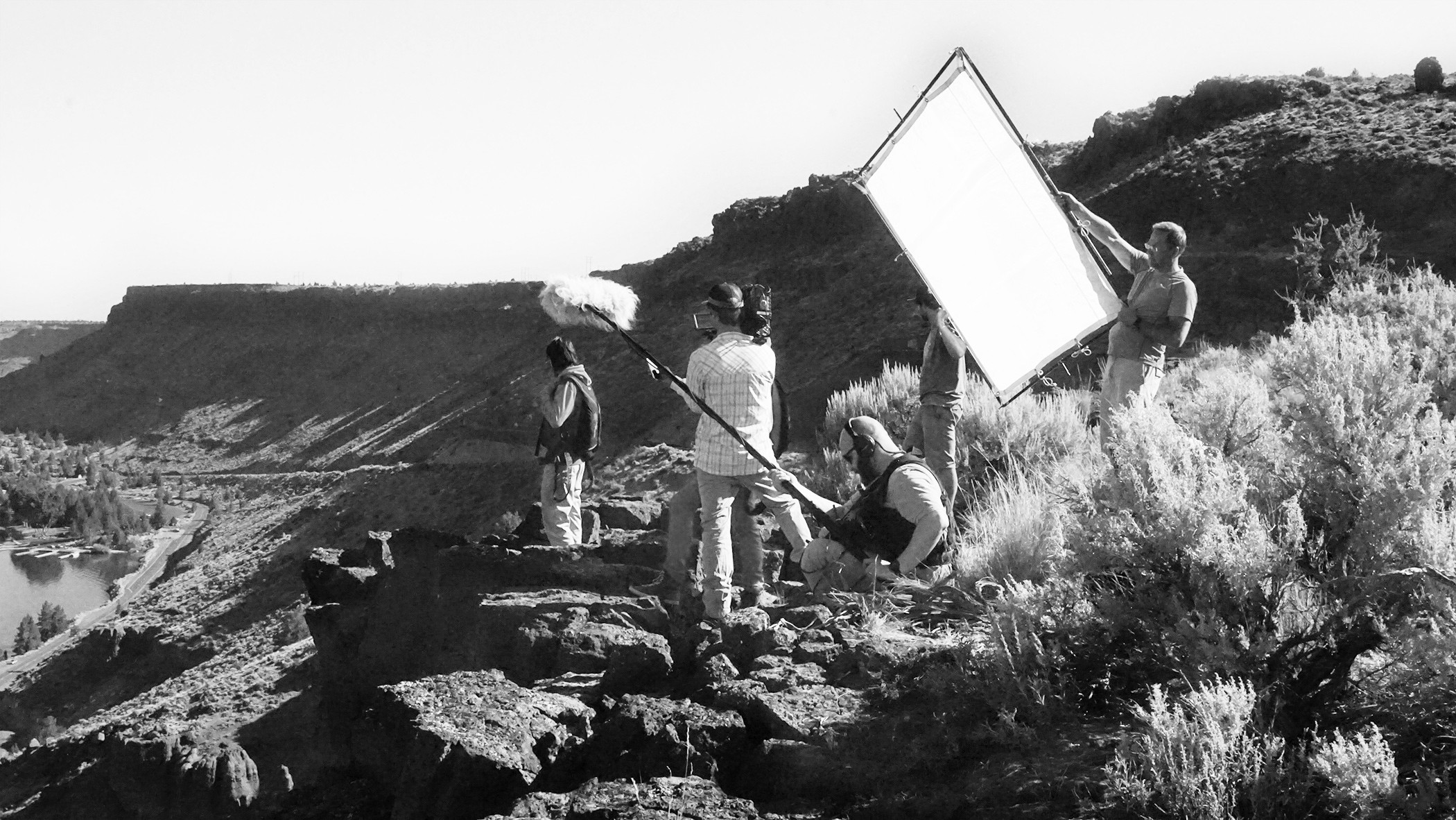
Things don’t have to be done a certain way. You don’t have to hit all the steps. It can be very organic.
DELVE
Ignorance is bliss. Formal training can be really, really good. But I see a lot of people come out of film school scared, nervous, and already dated because of how quickly everything is moving. We came into this and we were like, Hey, let’s try to get the rights to Myst, a $1 billion property. We didn’t know that was crazy. But it worked. Everything we did was taking the bull by the horns, not knowing if what we were doing was the best way to go about it. We were just doing things the best we could. I think that gave us an advantage early on, and it continues to give us an advantage.
Things don’t have to be done a certain way. You don’t have to hit all the steps. It can be very organic. We just try to listen to people. When you get a formal education, sometimes you can get in the mind-set of This is what I know, this is what I’m going to work with.Whereas, if you don’t know any better, you’re like, “Hey, look! It’s the coolest new thing. Let’s try that!”
WERNER HERZOG
When I write, I sit in front of the computer and pound the keys. I start at the beginning and write fast, leaving out anything that isn’t necessary, aiming at all times for the hard core of the narrative. I can’t write without that urgency. Something is wrong if it takes more than five days to finish a screenplay. A story created this way will always be full of life. — A Guide for the Perplexed
MATHY + FRAN
Fran: Isn’t that what they say about the whole creative process? It’s the moment you stop thinking about something that you get your best idea? … A lot of times we’ll sit in front of the computer for half a day and not come up with anything. Then we’ll go for a walk down the street and realize, Oh, of course! It was so straightforward! The best ideas happen when you’re not thinking about them.
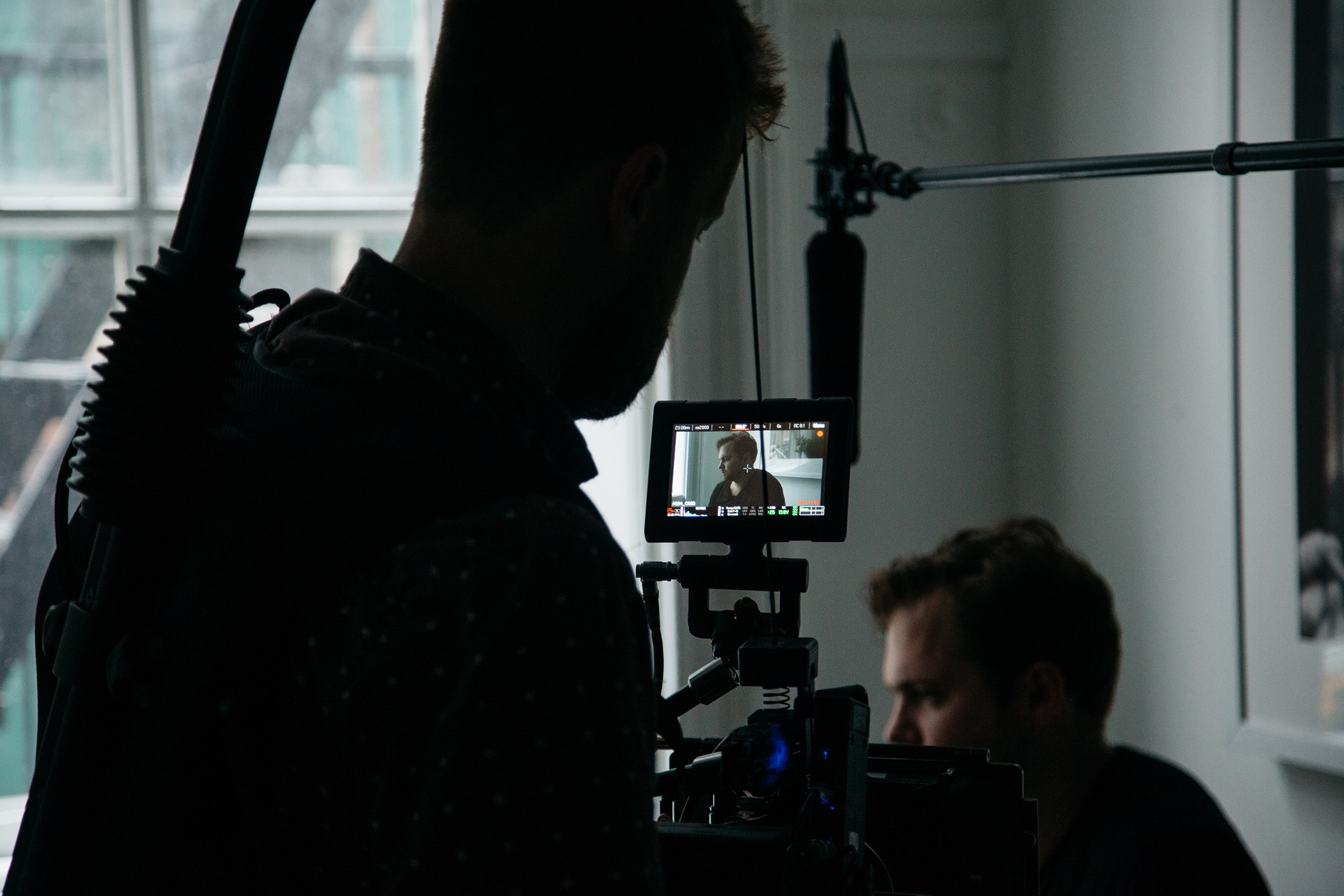
CHAYSE IRVIN
I used to be really, really prepared for everything. I knew exactly what I wanted to do with the narrative and the lighting setups. But I’m not like that so much anymore. I want to do less and less with my lighting. As a camera operator, I wanted to be more reactive. I wanted to feel the flaws. I didn’t want everything to be perfectly planned out and perfectly executed. I started finding the imperfections really, really interesting. And it’s not that I don’t plan anymore; it’s just that I’m very quick to divert from it, react to whatever is happening.
[…] Another thing is that I like to work very quickly. Some of the best cinematography I ever shot was in these moments when I forgot entirely what I was doing and why. I think that’s when artists are really creating their best work, when they stop doing things voluntarily.
BRANDON LOPER
MB: Do you struggle with wondering if you’re not any good and thinking everything you make is terrible?
I struggle with that every day. It’s that artist’s struggle. But I was having a conversation with my wife this morning about how fortunate I am to have been given this blind, humble confidence somewhere inside of me. I don’t know where it comes from. But you have to have confidence. Directing is about who can stay in the game the longest. I’ve seen a lot of people my age who aren’t directing anymore. Because it’s hard. It’s a hard thing to do. You’re being judged and you always have to be creative and you have to find a way to make a living. You have to find people who are going to believe in you and bankroll your projects.
ANNIE DILLARD
One of the few things I know about writing is this: spend it all, shoot it, play it, lose it, all, right away, every time. Do not hoard what seems good for a later place in the book, or for another book; give it, give it all, give it now. The impulse to save something good for a better place later is the signal to spend it now. Something more will arise for later, something better. These things fill from behind, from beneath, like well water. Similarly, the impulse to keep to yourself what you have learned is not only shameful, it is destructive. Anything you do not give freely and abundantly becomes lost to you. You open your safe and find ashes. — The Writing Life

Clutter and mess show us that life is being lived. Clutter is wonderfully fertile ground.
AUTUMN DURALD
MB: Are there common things that hold people back from becoming successful DPs?
One thing I saw a lot at film school — and I did this myself — was being too particular, focusing too much on making things look pretty and not on telling a story. Your work has to come from inside you. You have to have a unique perspective. What makes for amazing cinematography is when you and the director are both bringing your unique perspectives when you work together. Sometimes these young DPs — especially with digital cameras — try too hard to make things look perfect, and they don’t consider the story. Everything is starting to look the same.
You have to put yourself into the work, you have to have confidence and not be insecure. The same is true for directors. The best directors are the ones that put everything out there, and you feel it when you watch their work. My advice is to try anything, don’t be afraid to make mistakes. That’s how you learn what you like and don’t like.
ANNE LAMOTT
Perfectionism will ruin your writing, blocking inventiveness and playfulness and life force…. Perfectionism means that you try desperately not to leave too much mess to clean up. But clutter and mess show us that life is being lived. Clutter is wonderfully fertile ground. — Bird by Bird
You heard Anne: Go make a mess. You’ll find your way once you get your feet moving. Sprint, if possible.

















































































